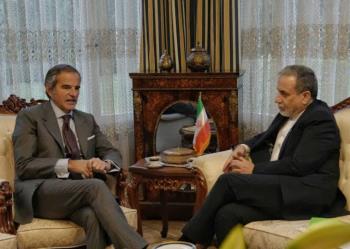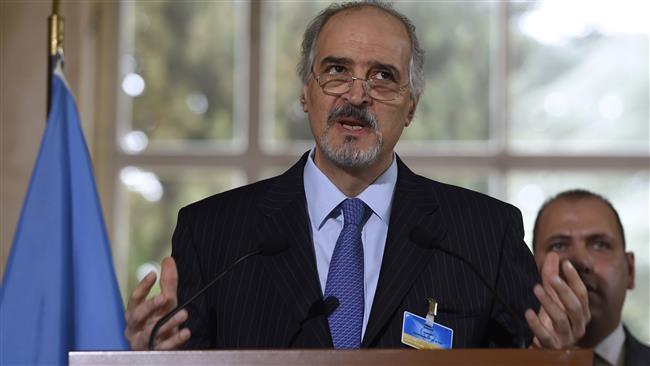Alwaght- Head of the Syrian delegation in Astana talks said on Tuesday they are still in the process of discussing the mechanisms of implementing the de-escalation zones agreement.
Dr. Bashar al-Jaafari announced at a press statement in the Kazakh capital that, “We are still in the framework of diplomatic discussion on how to bring attitudes closer and find common denominators to focus on them for building a unified position.”
“We are still in the beginning, and we have not yet finished discussing the mechanisms related to implementing the agreement,” he added, noting that the Syrian delegation spend the whole day discussing these mechanisms with the Russian and Iranian delegations.
The fifth round of Astana meeting on Syria is taking place in Astana.
The Iranian delegation also held a meeting with the Russian delegation and discussed with it the points that were discussed earlier between the Iranian and Turkish delegations.
Earlier on the day, the guarantor countries of the cessation of hostilities in Syria (Russia, Iran and Turkey) held two sessions of talks at the level of technical experts on the frontiers and maps of the de-escalation zones in Syria.
The first round of the Astana talks, organized by guarantor states took place on January 23-24 and brought together representatives from the Damascus government and opposition groups. The second round of the negotiations, similarly brokered by the trio, was held on February 15-16 while the third round was held in mid-March.
On May 4, Russia, Iran and Turkey agreed to set up four de-escalation zones in Syria. Under a memorandum signed at talks in Kazakhstan’s Astana, these four zones include the Idlib province and some parts of neighboring provinces (Aleppo, Latakia and Hama), an area north of Homs, Damascus’s suburb Eastern Ghouta, and a number of provinces in southern Syria - Daraa and al-Quneitra.
In those areas, combat operations, including flights by military aircraft, were outlawed starting from May 6. The memorandum at the Astana 4 meeting was concluded for six months and can be extended automatically.
UN-brokered talks for Syria had been going on for a long time prior to the Astana talks, but have not borne fruit due to intransigence by Saudi-backed groups.
The conflict in Syria started in March 2011, with the government of President Bashar al Assad blaming some Western states and their regional allies of backing Takfiri terrorists wreaking havoc in the country.



























